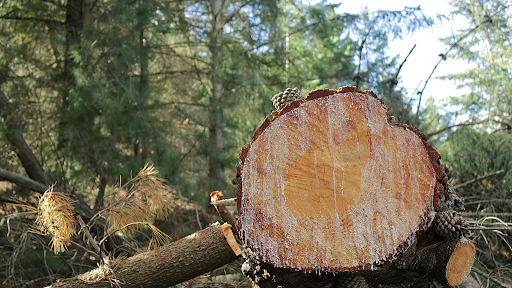



The Forest Rights Act (FRA), 2006 aims to rectify historical injustices by recognizing the rights of forest-dwelling communities. A recent claim by the Environment Minister linking FRA to forest loss has been refuted by civil society, citing lack of evidence and highlighting the success of community-managed forests in enhancing conservation.

Disclaimer: Copyright infringement not intended.
Recently, the Union Minister for Environment, Forest and Climate Change stated that the implementation of the Forest Rights Act (FRA), 2006, has led to forest loss.
The Scheduled Tribes and Other Traditional Forest Dwellers (Recognition of Forest Rights) Act, 2006—popularly known as the Forest Rights Act—was enacted to correct the historical injustice faced by forest-dwelling Scheduled Tribes and other traditional forest dwellers.
On June 25, 2024, the Environment Minister claimed that forest degradation has increased in areas where forest rights have been granted. This was presented as a reason for cautious implementation of FRA.
Over 70 organisations, including forest rights groups and legal experts, countered the Minister’s claim. Their main arguments include:
|
Aspect |
Detail |
|
Year of Enactment of FRA |
2006 |
|
Administering Ministry |
Ministry of Tribal Affairs |
|
Gram Sabha's Role |
Primary authority to initiate and approve forest rights claims |
|
Schedule V Areas |
FRA plays a major role in empowering tribal governance |
|
States with High CFR Potential |
Odisha, Maharashtra, Chhattisgarh, Madhya Pradesh |
|
% of Forest Land under Community Rights (as of 2023) |
Less than 5% of the potential 40 million hectares recognized |
Source: downtoearth.
|
PRACTICE QUESTION Q. With reference to the Forest Rights Act (FRA), 2006, consider the following statements:
Which of the above statements is/are correct? (a) 1 and 2 only (b) 1 and 3 only (c) 2 and 3 only (d) 1, 2 and 3 Answer: A Explanation: Statements 1 and 2 are correct: Under Section 6 of the Forest Rights Act, 2006, the Gram Sabha is the authority to: Initiate the process of determining individual and community forest rights. Receive and verify claims. Pass resolutions recommending the record of rights. Community Forest Resource (CFR) Rights under FRA Section 3(1)(i) of FRA provides Community Forest Resource rights that allow communities to: Protect, regenerate, conserve, and manage forests. Use forest produce for livelihood needs sustainably. This strengthens decentralized forest governance. Statement 3 is incorrect: The Ministry of Tribal Affairs (MoTA) is the nodal agency responsible for implementing the Forest Rights Act, 2006—not the Ministry of Environment, Forest and Climate Change (MoEFCC). |







© 2026 iasgyan. All right reserved